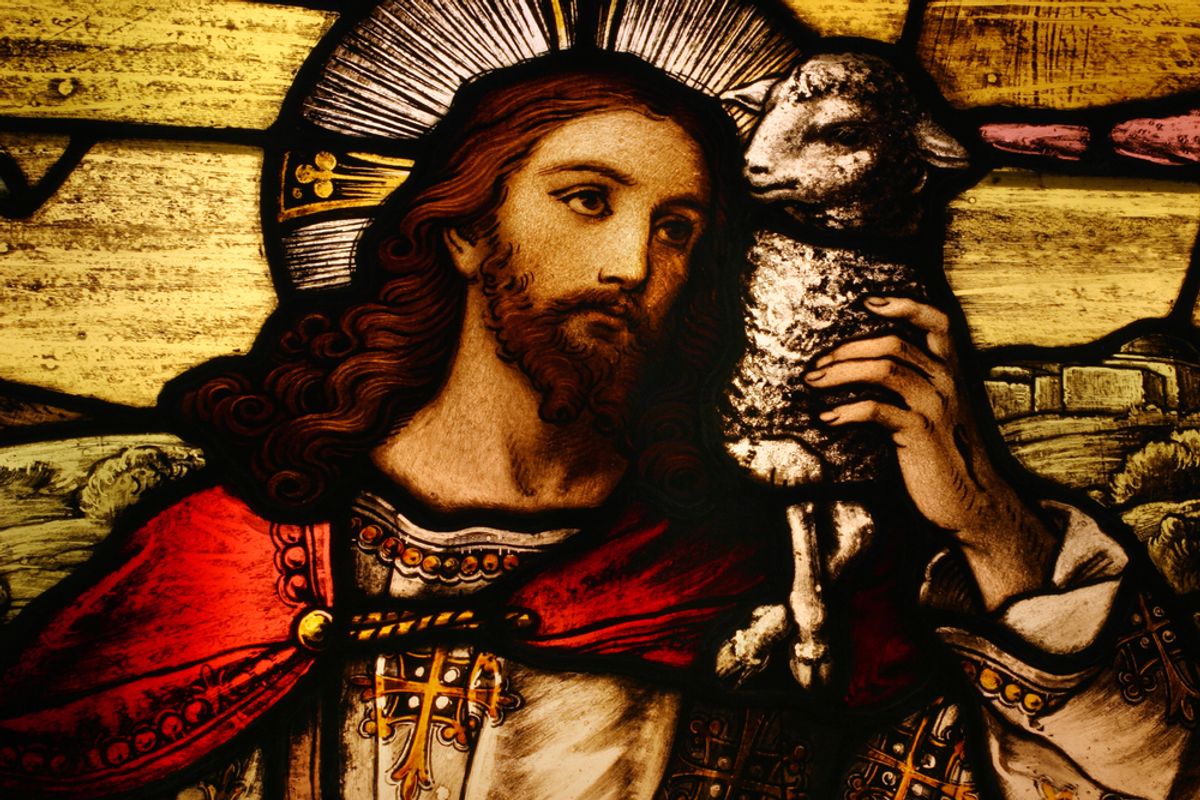 "It was Saturday that Jesus Christ went to Hell.”
"It was Saturday that Jesus Christ went to Hell.”
This is one phrase that Christians, whether mainline or evangelical, Catholic or Protestant, will likely not hear from the pulpit this week. And yet the story of Christ’s descent to the underworld has deep roots in tradition.
The fourth century Apostle’s Creed tells us that following his crucifixion, but before his resurrection, Jesus “descended to the dead.” The Athanasian Creed of at least a century later is more explicit, Christ “descended into hell.” Depending on context and translation Jesus either journeyed to Sheol, Hades, or Hell. But allowing for differences in language Christianity held—and technically still holds as a central tenet—the view that Jesus spent the gap between his death and resurrection “harrowing” Hell, that is journeying to the underworld to liberate the imprisoned souls of the Hebrew patriarchs who had been imprisoned there since their deaths.
Contemporary congregations will often translate “hell” into a more palatable “death” or “the grave.” There is something unseemly in the idea of Jesus among the murders, rapists, fornicators and heretics of Hell. And yet it was central to Christological accounts of salvation for two millennia that God Himself be present in the lowest rung of creation to justify redemption for all mankind.
Holy Saturday was a day in which God was not in His heaven, but rather in his Hell.
It was a theme fervently embraced in the medieval world. Christ’s “harrowing” (a word that comes to us from Middle English) seems to have been prefigured in classical sources: Ulysses visits Hades; Orpheus, the father of poetry, barely made his escape from the underworld. Perhaps it’s these pagan associations that make the idea so unpopular today. In the Inferno Virgil tells Dante of the “mighty one” who spirits the Hebrew patriarchs off to heaven (as he is in hell the Latin poet is unable to actually speak Christ’s name). The Middle English poem of Sir Orfeoconflated Orpheus and Christ in their harrowing, and one can easily see the war-like Anglo-Saxons being attracted to the militarism of a conquering Jesus crashing through the gates of hell as if through a medieval city.
As far as credal confessions of Christianity go, the harrowing of Hell may be the least remarked upon in the contemporary world. Some Protestants, citing a lack of scriptural backup, have abandoned it; others have softened the edges around the word “hell.”
I’d argue that this relative silence reflects a discomfort with some of the frankly weird aspects of Christianity. As a faith Christianity has always been defined by its paradoxes: God can become a man, God can die, God can be one and three at the same time, the King of Heaven can spend a day in Hell. If anything the heresies of the patristic era—Arianism, Monophysitism, Nestorianism and so on—are attempts to make Christianity more rational. It’s a fascinating aspect of Christianity that often the heretics are the more sober and rational ones while orthodoxy embraces enigma. Broadly speaking, the Eastern Orthodoxy has been more comfortable with paradox and the irrational, but in the Latin West Catholics and their Protestant inheritors have attempted to tame the scandal of Christianity with the rational equations of systematic theology.
In this way the positivist and the fundamentalist are strangely unified in their opposition to Tertullian’s infamous aphorism: credo quia absurdum (“I believe it because it is absurd”). The fundamentalist with his embarrassment over paradox denies the weirdness of his faith. The positivist can do no such thing and like Mr. Jefferson takes his razor to the Bible to excise the strangeness.
But central to the Christian vision is a profound and undeniable weirdness, and one of its strangest accounts is passed over in many a Holy Week homily. The passion story is filled with puzzles and uncertainty, from the harrowing to Christ’s cry of “My God, why have you forsaken me?” when, as GK Chesterton noted, God Himself seemed to be an atheist.* It’s these moments that constitute what the Slavoj Zizek names “the perverse core of Christianity,” the anti-Gospel as Gospel—a tradition that is too often silent during Holy Week.
* “…let the atheists themselves choose a god. They will find only one divinity who ever uttered their isolation; only one religion in which God seemed for an instant to be an atheist.”
–GK Chesterton, Orthodoxy

Shares